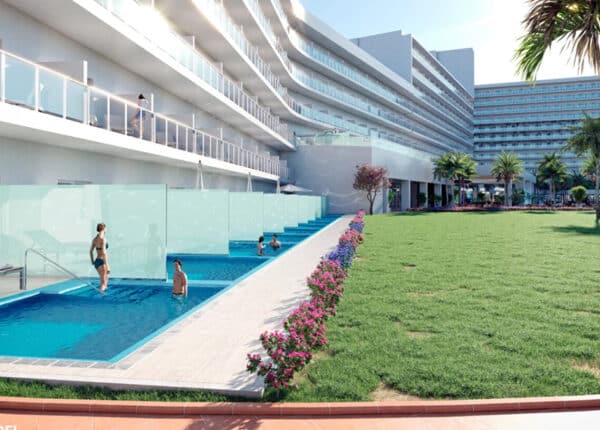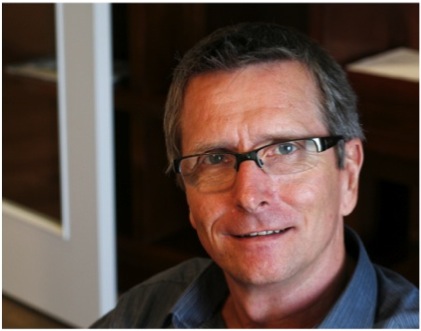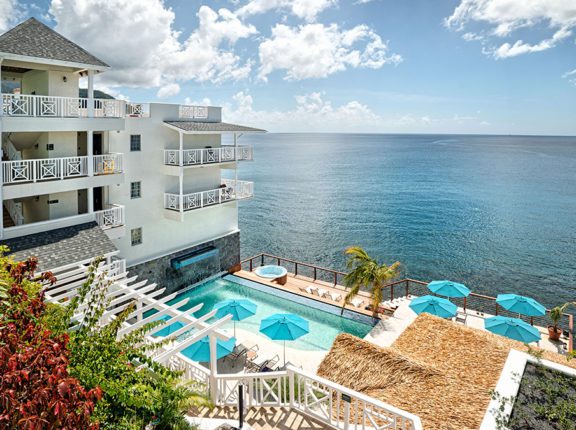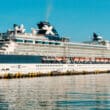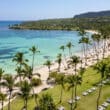OBMI’s Tim Peck Talks Scrub Island and Luxury Development
Tim Peck is the chairman of design firm OBMI and is the company’s former CEO for the Caribbean region. OBMI has long been a major player in the region, in master planning, resort design and development consulting. Peck, who makes his home in the British Virgin Islands, is a member of the Royal Institute of British Architects and the founding member of the BVI Society of Architects and Engineers. The company’s latest design project, Scrub Island in the British Virgin Islands, is a residential and resort property off of Tortola. Peck talked to Caribbean Journal about the Scrub Island project, making Caribbean hotels environmentally friendly and how the capitalization of luxury development in the region has changed.
What was the design process like for Scrub Island?
We designed the initial master planning on the property, then did all of the detail design work for the architecture and the marina, and took it through the approval process. I was somewhat involved in the construction process as well. It’s an interesting project — it’s fairly unique in terms of what’s been happening in the Caribbean recently. It’s basically developing an island from nothing. There was nothing there – no infrastructure – it was what you call a “virgin” Virgin Island. We literally had to start from scratch with the planning process, and think about how we could preserve as much as we could of the character and personality of the island, while still managing to produce a development which produces the financial criteria for the developers. Everything was kept in its virgin, natural form. On the north side, which has a beautiful beach, we kept that, with virtually no development at all. The only thing there is a small beach bar. One of the other interesting things is there was a lot of discussion during the process about the name of the island, because obviously “scrub” is not one of the more romantic names you can get for a resort. But what is nice is the origins of it; about 350 years ago, the British Virgin Islands was the haven for pirates and buccaneers in the eastern Caribbean. And what they used to do was take their boats to Scrub Island and haul them out in the shallows and actually scrub the barnacles off of the bottom of the boat – hence the name Scrub Island. It does have some nice bit of history – now, the only kind of scrubbing you get there nowadays is the exfoliation you get in the spa!
How much has luxury development changed in the region?
It’s changed quite a lot. Obviously we’ve gone through a fairly tough time globally over the past two or three years. The Caribbean had a number of major developments being driven by the crazy real estate situation of 2007 or so. And a number of large developments ended up effectively stalling with the recession, and we’ve had to go back and re-look at some of these developments and some of our original development plans. The whole financial premise of the sale of residential [in hotel properties] has somewhat vaporized. You have to kind of completely rethink the financial model. Whereas before, the hotel was almost an adjunct to the residential, and didn’t really need to justify itself, now it has to be viable in its own right, and it has to be able to financially stand on its own feet, with any residential that goes with it something of a bonus. So the whole capitalization of development has changed in the region. Another big change to things is, traditionally in the Caribbean, most of the hotels were unbranded. Now, the brands creeping more and more into the region, and something that is interesting is seeing the lifestyle brands come into the region. Once they get involved, it puts pressure on some of the private hotels. The private hotels have existed in some sense because they have a lot of character and personality. But some of that is beginning to get a bit aged and tired. And now you have lifestyle brands coming in, and I think over the next couple of years, we’ll see some strong moves toward having to renovate and reposition some of these existing properties.
What is your short-term outlook in the Caribbean?
The Caribbean’s geographic proximity to the U.S. has made it very dependent on the U.S. market, and I think it’s also challenged a little bit because it has quite a few legacy hotels which probably could do with some fairly significant upgrading and repositioning. I think the market is going to come back, but I think part of the challenge is a lot of the hotels have been struggling over the past year or two, and a lot of them have probably breached their covenants, in terms of loans with banks, but the banks have been doing the “extend and pretend” because they don’t want to suddenly force the hotels into a position where the bad debt situation becomes exposure on their books. But that’s been a very real situation. But the hotels are beginning to see positive lift, and their occupancy is beginning to fill up a bit. We’re going to see an interesting time over the next few years. The Caribbean will always exist as a tourism destination, and it will always have strength from the U.S. market. We’re really dependent on having confidence come back into that market. I was up in Miami last week for the CHRIS (Caribbean Hotel and Resort Investment Summit), and there was a comment by one of the major developers in the region, who was saying he believes residential coming back as strong as it was in 2007, and he sees that happening in the next four or five years. I think that’s a little surprising, but it’s great to hear from a developer. The demographics do identify that there will be a strong second home market once we do get some confidence back.
What is the nature of your partnership with Green Globes?
The partnership with Green Globes is a certification which is primarily based on hotel operations. So what happens is auditors will go in and do an audit based upon a number of parameters on how the hotel is functioning and operating. We’re working with Green Globes to try and develop a program which focuses more on the design side of things, so it’ll basically become a program which allows a developer to get a certification on the design side. It becomes something similar to LEED. The challenge with LEED in the Caribbean is it’s somewhat bureaucratic in its processes, and there are many areas where it’s very hard to qualify for it because it’s designed for the U.S. market. We’re trying to come up with a more pragmatic program, which gets people in at a slightly lower entry level, but still gives them that spirit of sustainability.
Is there an area of the region you see as untapped?
I think St. Vincent and the Grenadines is probably an interesting area to look at. St. Vincent is just putting in an international airport this year. It has had very little development, and the Grenadines are a chain of islands which are very beautiful. In terms of what hasn’t been developed at the moment, that has probably the most potential. The British Virgin Islands, which is my home, still has a lot of room to go in terms of development. Anguilla was one of the boom islands for a while, and it has some properties which are somewhat challenged there, but there’s a development we’re working on there called Conch Bay, which is going to be the first Jumeira hotel in the Caribbean region. It’s still in its early days at the moment, but the client has signed an agreement with Jumeira to take the project on, and we just redesigned the founders’ units, so it looks fairly active.
